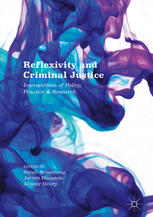

Most ebook files are in PDF format, so you can easily read them using various software such as Foxit Reader or directly on the Google Chrome browser.
Some ebook files are released by publishers in other formats such as .awz, .mobi, .epub, .fb2, etc. You may need to install specific software to read these formats on mobile/PC, such as Calibre.
Please read the tutorial at this link: https://ebookbell.com/faq
We offer FREE conversion to the popular formats you request; however, this may take some time. Therefore, right after payment, please email us, and we will try to provide the service as quickly as possible.
For some exceptional file formats or broken links (if any), please refrain from opening any disputes. Instead, email us first, and we will try to assist within a maximum of 6 hours.
EbookBell Team

4.7
26 reviewsThis collection presents a diverse set of case studies and theoretical reflections on how criminologists engage with practitioners and policy makers while undertaking research. The contributions to this volume highlight both the challenges and opportunities associated with doing criminological research in a reflexive and collaborative manner. They further examine the ethical and practical implications of the ‘impact’ agenda in the higher education sector with respect to the production and the dissemination of criminological knowledge.
Developed to serve as an internationally accessible reference volume for scholars, practitioners and postgraduate criminology students, this book responds to the awareness that criminology as a discipline increasingly encompasses not only the study of crime, but also the agencies, process and structures that regulate it. Key questions include: How can criminal justice policy be studied as part of the field of criminology? How do we account for our own roles as researchers who are a part of the policy process? What factors and dynamics influence, hinder and facilitate ‘good policy’?